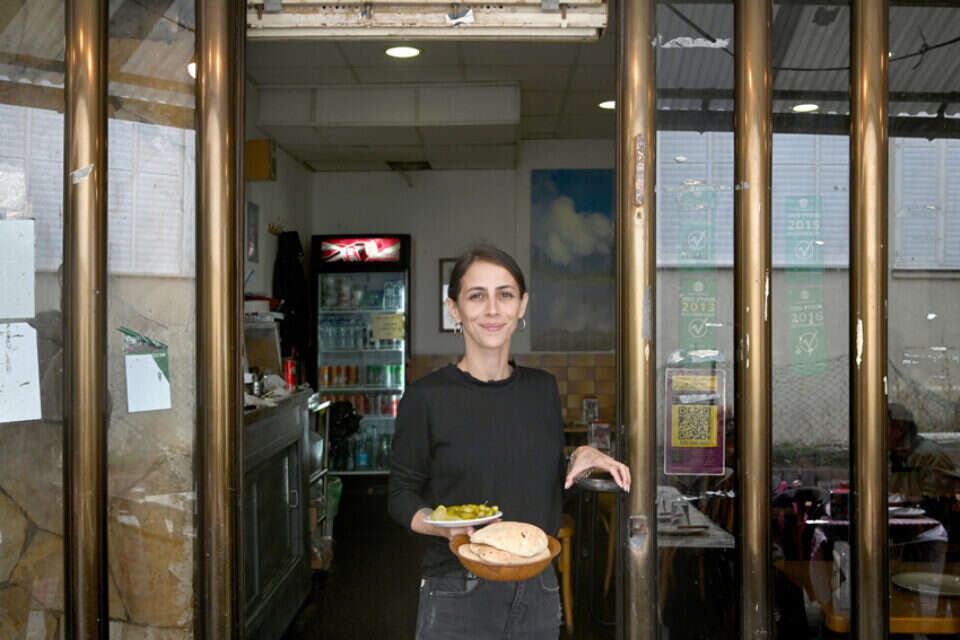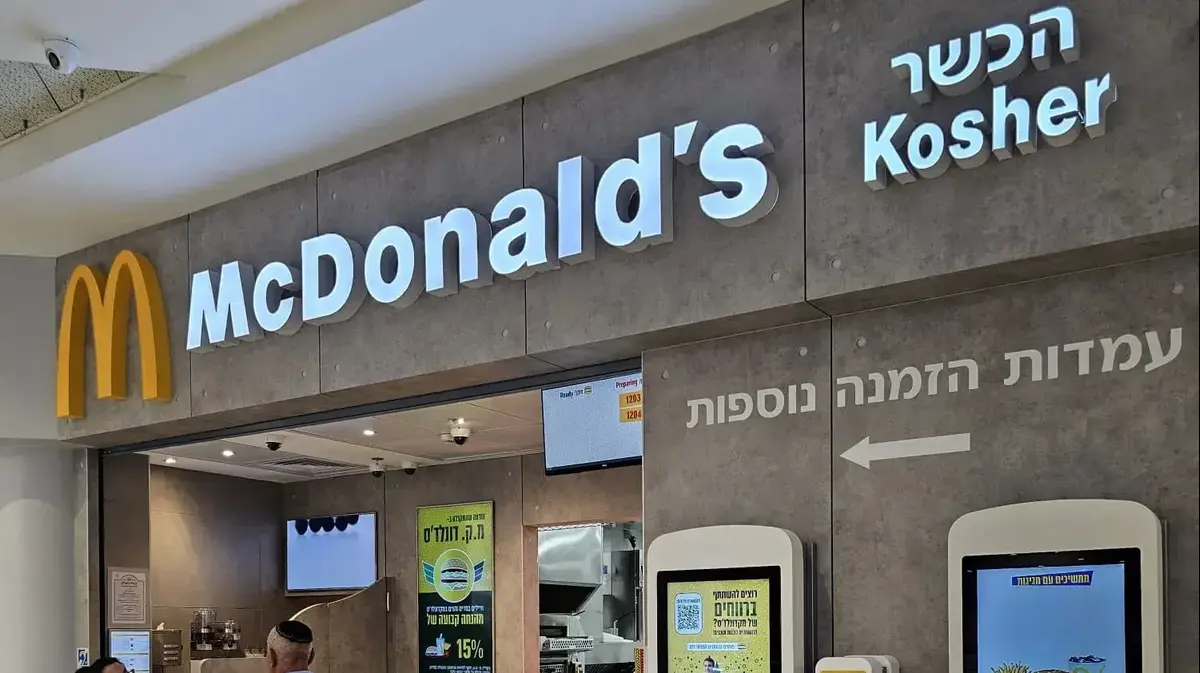Tel Aviv is a city that undergoes open heart surgery, when the patient is not only awake, but also alive and continuing his normal life.
This can be noticed even with the naked eye;
The light rail works, which were confused, turned Rabin Square, for example, into a hole in the ground, and likewise the Levinsky Garden.
Public gardens are obliterated, and it sometimes seems that buildings pop up in their place almost overnight.
Most of the streets are impassable for walking or driving, both because of the lack of sidewalks and because of the danger of the scooters flying from all sides without supervision or control.
The boardwalk, day and night, overflows.
Dozens if not hundreds of construction, paving and digging projects have given the city a non-stop soundtrack of air hammers hitting in the style of the "Blaumelech Canal".
The old neighborhoods are also changing their colors;
The south was painted almost entirely in the colors of immigrants from Africa.
The veterans went the meat way, and the young, who could not withstand the economic pressures, moved to the satellite cities where life is a little cheaper.
The entertainment centers have also changed, and old institutions are closing one after another.
This week, when we visited there, a handwritten sign on a regular printer's page was hung at its door, which so characterizes the simplicity of this restaurant, which has always refused to surrender to the dictates of time: "At the end of December, 'The Wide Heart' closes its doors! We will miss you," it read.
The customers who stood just before the sign, thought they couldn't see well, and asked the staff to confirm the bad news.
And yes, it's true - at the end of the coming month, the oldest culinary institution in the Yemenite vineyard and one of the oldest in Tel Aviv and Israel will close its doors for good.
"The Broad Heart" - which has been in its current location since 1965, and which was home to tens of thousands of Israelis, will disappear from the map.
The reason?
As always - a real estate deal. The owners of the property dispersed to all corners of the world, and the trustee who managed the place for them received an offer that could not be refused. In its place, a luxurious residential building will be built, with luxurious apartments at a typical price of NIS 70,000 per square meter.
Nothing will remain of the smells of the skewers on the grill and plastic crown chairs on the sidewalk.
The municipality of Tel Aviv has already made it very clear that it is no longer interested in the charcoal grill that emits smoke into the chimney.
Very soon everything will go to gas.
A world is disappearing.
Tel Avivians mainly order their food at "Volt" and it arrives quickly, packaged and sterile - another clear symbol of the processes that go through the white city that was built "from the foam of a wave and a cloud".
"Big money won again, evolution won, as happens everywhere in Tel Aviv," explains A, who has been working there for 25 years.
"When we leave here, you can say that it will no longer be the Yemeni vineyard. Because Yemenis are not here. Samson Tel Aviv no longer exists, and we are the last Yemenis," he smiles.
He does not want to be photographed, he asks that his name not be published, and he also gives quotes sparingly: "All our lives we have been like this, modest, I will not change at the age of 64. Take pictures of the restaurant and the customers, not me, I am only willing to answer questions related to history, and not beyond."
Skewers, salads, chips, pita and pickles.
A menu that has hardly changed in almost 60 years, photo: Efrat Eshel
The Yemenite who guarded the vineyard
In many ways, the restaurant "The Wide Heart" represents the story of the Kerem Hatiman neighborhood, located between Allenby, Gaula, Kobashim and Carmel streets in Tel Aviv.
The neighborhood was established in 1906, before the founding of the city of Tel Aviv, on the land of Aharon Shloush, Yosef Bek Moyal and Haim Amzlag.
The land was sold on attractive terms to the buyers, most of whom were Yemenis who came from Jerusalem.
Initially, the intention was to name the neighborhood after attorney David Moyal, son of Yosef Bek Moyal, but since its establishment took many years, it was proposed to call it "Camp Israel".
In its first houses, built earlier north of Jaffa at the end of the 19th century, Jews who came to Israel from Yemen in the waves of immigration in the year 1882, "Aala Batmar" (1881-1882) settled. It was not until May 11, 1923 that the neighborhood joined, along with other Jewish neighborhoods , within the boundaries of the city of Tel Aviv. Later, more barracks and small houses were built. It was only in 1929 that the name Kerem Hatimani was established. Legend has it that the first name was "Kerem Hatimani", and originated from the Yemeni watchman who looked after Yosef Bek Moyal's vineyard. The neighborhood was characterized by low construction, in courtyards Boarding houses, in adjoining houses and in narrow alleys.Due to the poverty that characterized the residents of the neighborhood, her houses were initially built with wooden roofs, tin plates and other cheap materials.
When the Carmel market began to operate, the experience of the skewers was created in the vineyard, and around it, the turbans developed, one of the hallmarks of Israeliness as a whole.
Later, the Hatikva neighborhood will arrive and in fact will base its character around the idea of the Yemenite vineyard.
But the vineyard was there first, with the Yemenite color and talent that immediately stood out in all walks of life: on the musical side, bands such as "Sounds of Shabazi", Rami Danoch and Yehuda Kiser ("Sounds of the Oud"), Ahuva Ozeri, the duo "The Suburbs" (Yossi Khouri and Nissim Menachem) grew up in the neighborhood. , Boaz Sharabi and Suleiman the Great - Shlomo Cohen, the father of Yizhar, Vardina and Hofni.
In football, the neighborhood was represented by Shimshon Tel Aviv, which was indeed the smallest team in the city, but knew how to tail the big ones.
And yes, crime and drugs were here too.
and a lot
The sounds of the oud in the mid-1970s, photo: Rami Danoch
Of the many restaurants that operated in the Yemenite vineyard, only a few remain.
Most of them have been replaced by fast food stalls of more or less well-known chefs in the Carmel Market, which has become a vibrant international market with a diverse offering - from Chinese dim sum to imported cheese boutiques.
In other words, it's no longer the market you go to just to buy fresh chicken and potatoes.
The old Maganda is still holding its own down the street, and is considered a pioneer in the genre.
But eating while sitting on the road is a style that is disappearing in Tel Aviv, and in general.
A Yemeni telenovela in transition
The restaurant's history could be rewritten as a telenovela script.
The first branch of "Halev Harhav" was established in the late 1950s at the bottom of the vineyard by two partners, Shlomo Hamdi and Aharon Jardi, who were then 20 years old.
The young passage, which began to be filled with skewers and soups, became one of the centers of entertainment for the Tel Aviv bohemians, who were tired of the bourgeois cafes of Dizengoff.
Only three types of skewers were served then, along with bowls of tahini, pickles and pita bread.
Desserts were an invention belonging to the other side, the Ashkenazi, of the city.
Today it doesn't sound like much, but back then, relative to the limited culinary offerings of little Tel Aviv, it was a matter of the whole world.
Then the two parted ways and another restaurant was opened, this time in its current location on Rabbi Akiva Street.
The owner was Aaron Grady, a local businessman, who recognized the barbecue's potential as one of the unofficial symbols of the state.
Both restaurants worked for several years at the same time, until in the end only one remained, the current one.
Eva Grady, Aaron's wife who has since passed away, assembled a second generation team of employees and founders, and the charm of the place attracted all the who's who of the young Israeli society: the mythical mayor Cheech used to come here to eat skewers, Samson Tel Aviv celebrated here All her victories before she disappeared from the map, many films and music videos were filmed here, tycoons opened tables and sat here, and also artists like Yehudit Ravitz, members of the Mashina establishment, footballers, chefs and politicians dropped a skewer or two here.
Everyone who grew up in Tel Aviv in the 70's and 80's knew that there is one restaurant where nothing ever changes: not the texture and certainly not the taste.
1,000 skewers on Yom Tov
In the restaurant's peak years, the "wide heart" would fly 1,000 skewers a day.
The restaurant only opened deep into the afternoon, and became a focal point for revelers leaving the nearby cinemas or for partygoers who were ejected early in the morning from the famous "Allenby 58" club.
These too, by the way, were replaced by the excavations of the light rail and huge traffic jams, which made it very difficult to access the restaurant.
And today?
Maybe 100 skewers are sold on a strong day.
Why?
"Because times were different, people came and ate cheaply, had a good time and went home happy. Today this form of entertainment has disappeared," explains A. Yours. It's impossible to have a place like this in Tel Aviv. What, I'll move this place to a shopping mall? People want this place as it is. I sometimes tell them, 'Don't stretch on the chair, lest it break,' or don't touch the pictures on the wall, Because they can fall at any moment."
Tables on the pedestrian street.
An eating style that is disappearing, photo: Efrat Eshel
Skewers for NIS 100 per person?
"Boaz Sharabi washed dishes here at the beginning of his career. He would drum and play all day, and it would annoy everyone," recalls Sefi Hammadi, who worked there for all these years.
"My dear, the assistant whistleblower once told us that we don't use lamb, but only lamb fat, and the skewer is generally turkey. But that was so many years ago. Then there was no lamb in the country at all and it was expensive, but the Israelis liked it, so we continued."
Hamdi will also soon leave the workplace that was a home for him and his family.
"I remember that the customers helped us open on Saturday night. They would wait for us to open, and often they were hungry, they would arrange the tables and chairs with us. These are days that will not return. Until recently, 60 or 70 shekels per person would have allowed everyone to earn and enjoy themselves, today when you come For a skewer restaurant, the price already reaches 100 shekels per person. If you ask me, the closing of the restaurant is the beginning of the end of the vineyard. In 50 years, they will not even remember that there were Yemenis here and that this place was called the Yemenite vineyard. They will probably call it Neve Huldai or Kerem Huldai, Because the change in the neighborhood is his vision, and the change of the city is done in his image and likeness."
Yehezkel Zadok, a former resident of the neighborhood, who no longer lives there, explains: "You have to understand that the 'wide heart' was the center and the beating heart of the Yemeni vineyard. Its owners were the focal point of everything. They knew what was going on in the upper world and the lower world, because everything came together to this restaurant. This is a time that was and is not. It is enough to look at the Carmel market, which also marks in many ways what has happened to the neighborhood. There was a mixture of everything from everything, from the neighborhood also grew the 'Kerem gang', with Tovia Usheri and Rahamim Aharoni. And at the center of it all were The restaurants and the food and the entertainment until the wee hours of the night, the rock and roll along with the oriental music, this food along with the drinking - that was the contribution of this place to Israeli culture."
The first branch of the "Helav Ha'ar" restaurant that operated until the early 1990s.
Became the center of entertainment for the Tel Avivian bohemia, photo: Sefi Hammadi
Tourists are still coming in droves
At lunchtime on one of the days of the past week, the restaurant is packed.
Tourists who dine here say they were told: "First of all in Tel Aviv to get to the 'wide heart'", they explain in a heavy French accent before they go back to eating.
At another table, a young man is taking off for South America and his parents have brought him a farewell dinner of his choice.
A customer from another table asks: "When will the article be published? I've been eating here for more than 40 years."
Young American tourists, maybe 18 years old, say that their parents told them to come here and take a skewer in the pita.
A short Google search for "Halev HaRav" reveals that dozens of places in Israel have restaurants called that, from Eilat to the north.
But they have nothing to do with the original and mythical place, and it seems that no restaurant will dare to approach the Tel Aviv area with this name.
"People here react as if, God forbid, someone died for them, I'm the one who needs to calm them down."
Number A, "For them it's much more than food, it's memories. They came here with their grandfather and father, and now they come with their children, and everything remains exactly the same. That's the secret of this place. You know that sometimes customers come, and you see that the man died or the woman died, and I look at myself and say to myself that maybe the best part of this story, is that it happened now, when I'm 64 years old, and it's a good time to go. I'm asked what I'm going to do, so I always have an answer that I learned in Corona; I say To them that I'm going to work from home. Some really believe me, so I give this answer to everyone."
Indeed, many of the customers we spoke with told us that they wanted to contact the owner of the house, Eva, and convince her to open another place in the vicinity of the market after all, perhaps to attract a little more, as much as possible, the tastes of childhood.
When we leave the crowded restaurant for the last time, we look at the menu that hasn't changed in decades: chicken skewers, red meat, hearts, lamb, chicken liver.
Over the years desserts and even a vegetable salad were added, who would have believed.
In ten years it seems that no one will remember what was here, and only the old photos will remind of what the sense of smell and the sense of taste will no longer be able to tell.
"This food has always been and will be in demand. It is not going out of fashion and probably never will be. This is Tel Aviv that is changing around us," Sefi Hammadi summarizes for us.
"Perhaps the 'wide heart' doesn't mean much to tourists. But for many Tel Avivians, it's about the history of this city and their own lives. That's why it hurts so much for them."
shishabat@israelhayom.co.il
were we wrong
We will fix it!
If you found an error in the article, we would appreciate it if you shared it with us







